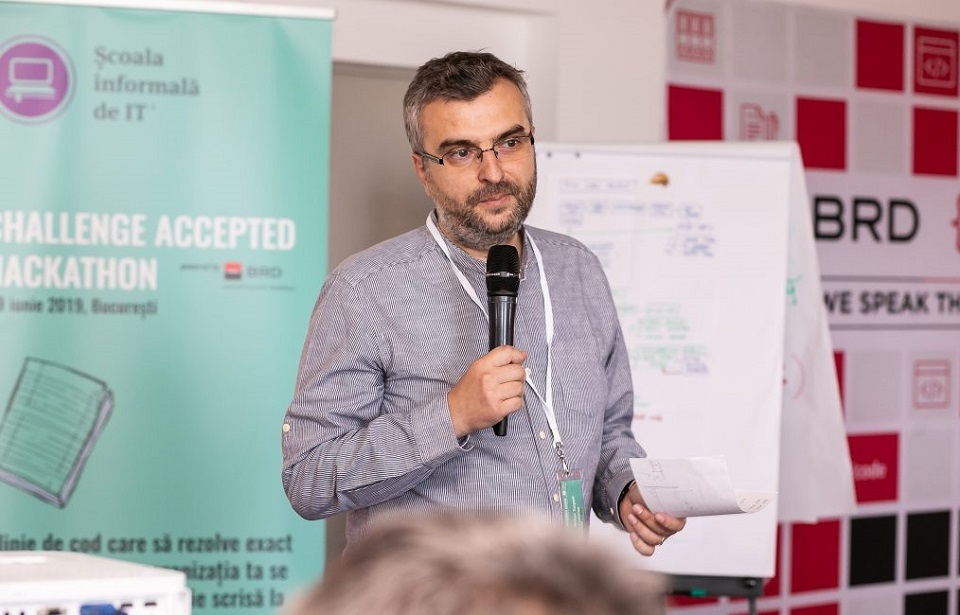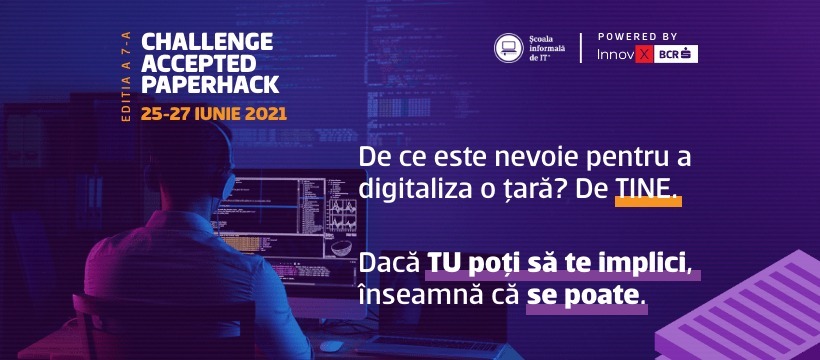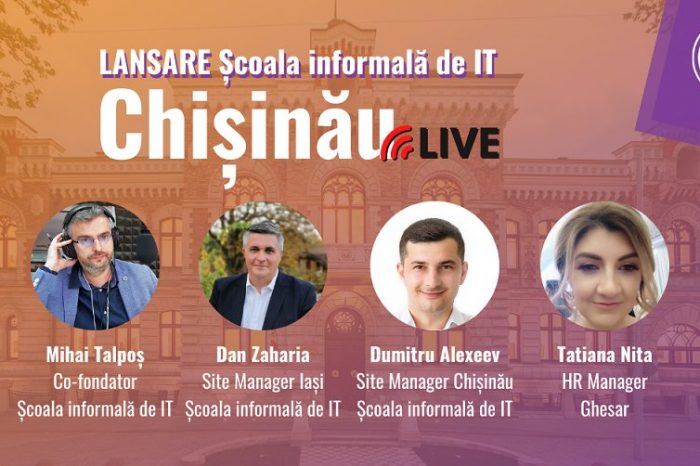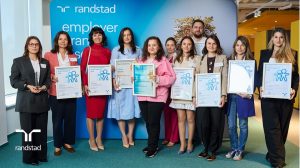Scoala Informala de IT organizes “Challenge Accepted Hackathon”, an event for the digitization of public institutions. The winning team will receive a prize of 10,000 euros from InnovX-BCR

The Informal School of IT (SIIT), supported by the InnovX-BCR business accelerator, organizes online the 7th edition of the “Challenge Accepted Hackathon”.
Between June 25-27, in a maximum of 48 hours, over a hundred IT specialists will work for projects to digitize NGOs or public institutions: schools, hospitals, town halls, local councils, central authorities. The participants are mentors and students of the Informal School of IT, professionals of famous IT companies, developers, software architects, but also young entrepreneurs and IT enthusiasts.
They will create functional prototypes of software applications for public institutions that compete with the needs or problems they face due to bureaucracy and more. The team coordinators are mentors with extensive experience in the Informal School of IT, specialized in various fields, including Artificial Intelligence, VR or Machine Learning.
10,000 euros for the winning team The jury of the Hackathon will choose an MVP (“Minimum Viable Product”) to enter the incubation period and be transformed into a functional application.
The InnovX-BCR business accelerator will offer the winning team a prize of 10,000 euros, and the teams that will rank second and third will benefit from prizes consisting of technical objects and equipment. Those who want to join the event as participants or propose a “challenge” (a software idea), can do so through the site: challenge.scoalainformala.ro, until June 24.
“We are glad that various software challenges or ideas have already entered the competition, covering a wide range of societal needs. So far, we have received over 35 challenges, both in the area of local urban or rural authorities, and in education or medicine. The selected ideas will be presented by the initiators in front of all participants in the hackathon, and they will choose the projects for which they will allocate time and know-how. At the end, software prototypes will be launched to facilitate the interaction of citizens with various public authorities, to reduce bureaucracy or to help doctors in their permanent fight for health “, says Mihai Talpoș, Co-founder of Scoala Informala de IT.

The applications developed during the 2020 hackathon will serve U.P.U.
“We are happy to be able to support the initiative of the Informal IT School again this year, being aware that the rapid digitalization of public institutions can help us to transform the Romanian society into a modern and efficient one. In fact, BCR has already signed with conviction in the direction of digitalization, so the association with the Informal School of IT in this bold approach came as a natural gesture. We hope that the event will capture the interest of all BCR clients, including the public institutions we collaborate with and which we invite to take advantage of and come up with concrete challenges in front of the participants in the hackathon “, says Ana Maria Cretu, BCR Start-ups Program Coordinator.
“Challenge Accepted Hackathon” is an event launched in 2015 by the Informal School of IT, out of the desire to provide course participants with a laboratory environment in which to practice their knowledge. Over 1,000 people took part in the previous six editions. The 2020 edition, dedicated to the fight against Covid-19, was attended by eight countries.
Two of the applications made in 2020 will be launched soon and will serve several Emergency Reception Units in the country or associations working in the field of palliative care. The “Challenge Accepted Hackathon” Informal IT School event, powered by InnovX-BCR, is also supported by companies such as BCR, Google – Digital Workshop, Huawei, HP, 8×8, Cegeka, Life is Hard, Ness, EPAM, TopTech, Fab Lab Iasi or Ghesar.
Partner communities are Google Developers Group Bucharest, Google Developers Group Iasi, Bucharest AI, Iasi AI, Cluj IT Cluster, Smart Health Cluster, Association for Infection Prevention and Control, Association of Manufacturers and Distributors of Information and Communication Technology Equipment (APDETIC), Europäisches Projekt Entwicklungs Zentrum – EPEZ (European Project Development Hub), National Association for Rare Diseases Romania.














